Global Music Industry Demand Release Of Iranian Rapper Toomaj Salehi
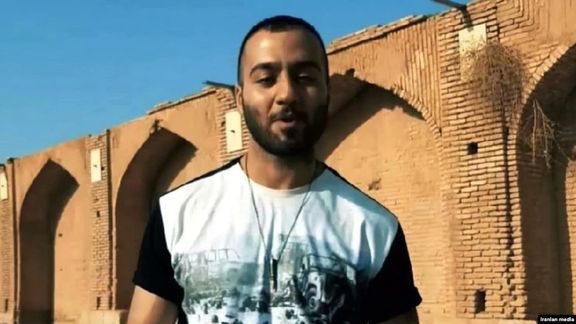
The International Federation of Musicians, alongside three other music organizations, has issued a joint statement demanding the immediate release of Iranian rapper Toomaj Salehi.

The International Federation of Musicians, alongside three other music organizations, has issued a joint statement demanding the immediate release of Iranian rapper Toomaj Salehi.
Salehi's recent re-arrest has sparked condemnation from civil society organizations, denouncing the suppression of artistic expression in Iran.
Salehi, who was previously imprisoned for one year and 21 days, with 252 days spent in solitary confinement, was released on bail on November 18th. However, he was detained again just 12 days later after releasing a video detailing the torture he endured while in prison. In the video, Salehi accused prison authorities and government-affiliated media of misconduct.
“We would like to remind the Iranian Government and State about their international obligations of respecting international conventions, and we refer to a previous condemnation by UN Special Rapporteurs as well as UNESCO when Iran has violated artists rights to freedom of expression,” reads the statement shared by Salehi’s X account.
“Iran has an obligation to respect freedom of expression which includes that right to seek, receive and impart information and ideas, including through art and culture."
Salehi, known for his protest rap songs and support for the Woman, Life, Freedom protests, was first arrested in November 2022 and has since become a global face of the dissident movement in Iran.
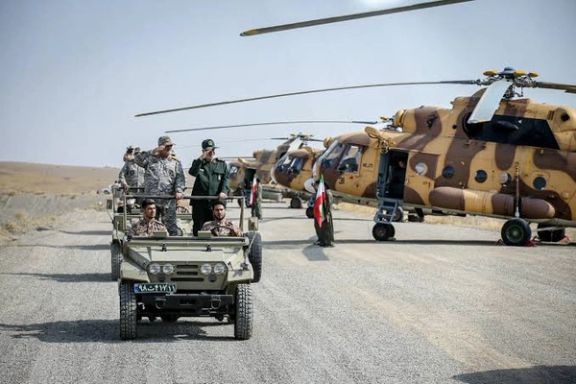
Iran's IRGC has reduced the presence of its senior officers in Syria due to a spate of deadly Israeli strikes and will rely more on its militia proxies, Reuters quoted five sources as saying.
The Guards have suffered one of their most bruising spells in Syria since arriving a decade ago to aid President Bashar al-Assad in the Syrian war. Since December, Israeli strikes have killed more than half a dozen of their members, among them one of the Guards' top intelligence generals.
As hardliners in Tehran demand retaliation, Iran's decision to pull out senior officers is driven partly by its aversion to being sucked directly into a conflict bubbling across the Middle East, three sources told Reuters.
Iran International reported last week that some in Tehran suspect an Israeli infiltration in tracking and pinpointing the whereabouts of senior IRGC officers in Syria.
Moreover, after a January drone attack by an Iranian-backed Iraqi group in Jordan that killed three US soldiers, Washington has vowed to retaliate against unknown targets, that could include IRGC assets in Syria.
While the sources said Iran has no intention of quitting Syria - a key part of Tehran's sphere of influence - the rethink underscores how the consequences of the war ignited by Palestinian militant group Hamas' Oct. 7 attack on Israel are unfolding in the region.
Iran, a backer of Hamas, has sought to stay out of the conflict itself even as its proxy groups that have entered the fray from Lebanon, Yemen, Iraq and Syria - the so-called "Axis of Resistance" have intensified attacks on US and Israeli targets, as well as international maritime traffic in the Red Sea.
One of the sources - a senior regional security official briefed by Tehran - said senior Iranian commanders had left Syria along with dozens of mid-ranking officers, describing it as a downsizing of the presence.
The source did not say how many Iranians had left and Reuters was unable independently to determine that.
Iran has sent thousands of fighters to Syria during the Syrian war. While these have included members of the Guards, officially serving in the role of advisors, the bulk have been Shi'ite militiamen from all over the region, specially from Afghanistan.
Three of the sources said the Guards would manage Syrian operations remotely, with help from ally Hezbollah.
Another source, a regional official close to Iran, told Reuters those still in Syria had left their offices and were staying out of sight. "The Iranians won't abandon Syria, but they reduced their presence and movements to the greatest extent."
The sources said the changes so far had not had an impact on operations. The downsizing would "help Tehran to avoid being pulled into the Israel-Gaza war," one of the sources, an Iranian, said.
'INTELLIGENCE BREACH'
In one of Israeli attacks, on Jan. 20, five members of the Guards were killed, Iranian state media reported, including a general who ran intelligence for the Quds Force, which is responsible for the Guards' overseas operations. The strike flattened a Damascus building.
Another, on Dec. 25 outside Damascus, killed a senior Guards adviser responsible for coordinating between Syria and Iran. Iran's Supreme Leader Ayatollah Ali Khamenei led prayers at his funeral.
Three of the sources told Reuters the Guards had raised concerns with Syrian authorities that information leaks from within the Syrian security forces played a part in the recent lethal strikes.
Another source familiar with Iranian operations in Syria said the precise Israeli strikes had prompted the Guards to relocate operational sites and officers' residences, amidst concerns of an "intelligence breach".
The prolonged presence of Iranian forces in Syria has cemented a zone of Iranian influence stretching through Iraq, Syria and Lebanon to the Mediterranean, creating a considerable threat to Israel and other countries.
Three of the sources said the Guards were once again recruiting Shi'ite fighters from Afghanistan and Pakistan to deploy to Syria, echoing earlier phases of the war when Shi'ite militias played a part in turning the tide of the conflict.
The regional official close to Iran said the Guards were drawing more on Syrian Shi'ite militias.
Gregory Brew, an analyst with Eurasia group, a political risk consultancy, told Reuters the failure to protect Iranian commanders had "clearly undermined Iran's position" but Tehran was unlikely to end its commitment to Syria to preserving its role in Syria.
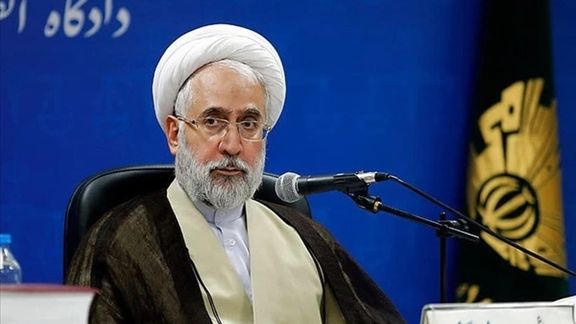
As the regime fears a national boycott of upcoming elections, Iran's attorney general has played on foreign security threats to incentivize participation.
Speaking on Wednesday, Mohammad Movahedi Azad stated, "Holding elections and the people’s turnout ensures the country’s immunity against enemy aggression."
The claims were unfounded, and come amidst Iran's proxy war being waged across the region.
As Iran gears up for parliamentary and Assembly of Experts elections scheduled for March 1, the country stands at a pivotal juncture, particularly with the assembly responsible for appointing Supreme Leader Ali Khamenei's successor.
The upcoming elections hold weight not only in terms of leadership transitions but also in affirming the regime's legitimacy. However, concerns loom over anticipated low voter turnout, with recent polls suggesting a potential decline compared to previous records, sounding alarms among authorities, including Khamenei, who have historically linked high turnout to regime credibility.
Nevertheless, a growing sense of disillusionment pervades various segments of Iranian society, fueled by perceived failures in addressing socio-political grievances, widespread corruption, and restrictions on freedoms with brutal oppression.
Many Iranians, skeptical of the regime's promises, have chosen to abstain from electoral participation, viewing it as futile in bringing about meaningful change.
Despite Khamenei's recent calls for mobilization, the widespread exclusion of moderate and reformist candidates underscores a widening gap between the regime and certain segments of the populace. Consequently, he resorted to ordering officials and institutions to push the people to the polls in any way they could.
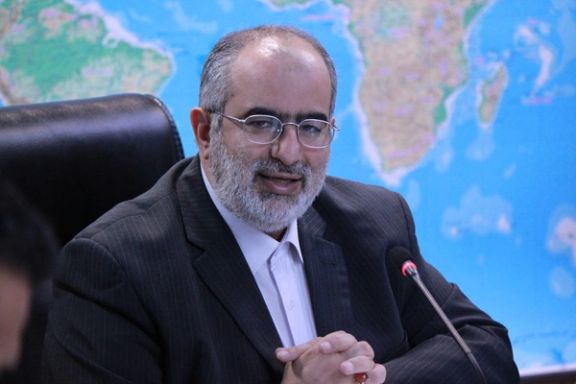
Hesamoddin Ashena, a former presidential advisor under Hassan Rouhani, has advocated for talks with the United States amid brewing regional conflict.
Suggesting this is the opportune moment for dialogue, Ashena wrote on X, "If one believes negotiations must occur from a position of strength, then is now the time?"
It comes in the wake of an Iran-backed proxy attack on US troops in Jordan, which left three US personnel died on Sunday, leaving questions for the Biden administration as to what comes next in the face of an emboldened Iran.
Tensions between Iran and the US have reached a new level since the Gaza war, when over 160 Iran-backed proxy attacks have targeted US facilities and personnel in Iraq and Syria, as well as the Red Sea shipping routes. They claim to be acting in allegiance with Iran-backed Hamas in Gaza.
On October 7, the militant group launched a surprise invasion of Israel, sparking the worst war between Israel and the Gaza-based group since they took over the strip in 2007. Iran's proxies claim to be pressuring for a ceasefire, and targeting the US for its support of Israel's retaliatory attacks which Hamas claims has killed over 20,000 Gazans.
Iran's Supreme Leader Ali Khamenei has consistently rejected the prospect of direct talks with the United States. Throughout the 11-month period of nuclear negotiations held in Vienna from April 2021 to March 2022, the United States remained involved but primarily on the sidelines and Tehran refused to hold talks directly.
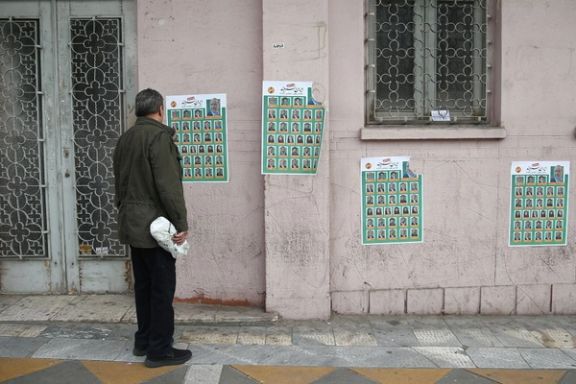
Iran's President Ebrahim Raisi faces an unusual challenge as he needs just one vote to secure reelection on March 1 to the Assembly of Experts in a small district.
When selecting his constituency last year, he could have announced his candidacy from Tehran, where he works and resides, or from Qom, the home of the Shiite seminary where he claims to be a 'ostad,' loosely translated as a professor. However, he was aware that candidates from Tehran require between 200,000 to half a million votes to secure a seat in the Assembly of Experts, while in small rural district, a mere 200 votes would suffice.
With the Guardian Council disqualifying all four clerics who competed against Raisi, it has essentially become a one-man show, and according to Iranian election laws, he could even cast that one ballot himself.
An aide of former President Hassan Rouhani, who was also running for reelection but was disqualified, playfully teased Raisi by suggesting he bring his wife, an Iranian university professor with fake credentials, for the vote. After all, two votes are better than one.
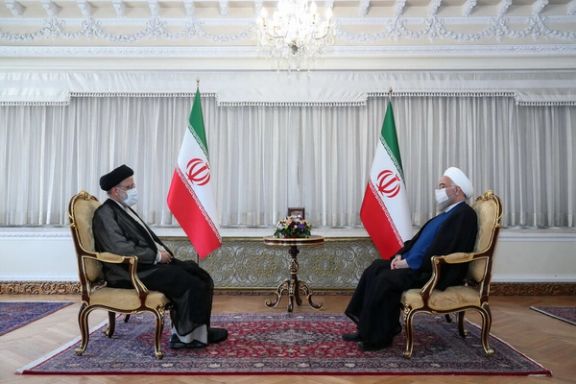
Compared to the parliamentary elections which is to be held on the same date, and is a bad blend of election rigging, biased vetting and shambolic campaigning, the Assembly of Experts election is practically a farce. In some places, like in the case of Raisi, there is just one candidate for a seat.
In Iran’s odd electoral system, the interior ministry and the Guardian Council have the power to bar any candidate from running in elections, without recourse to courts or any other type of accountability. Many long-time regime insiders and even former top officials have been barred from the March 1 contest, to allow hardliners to gain most of the seats in the parliament and the Assembly of Experts. The latter is the body that will select Iran’s next Supreme leader in the event of Ali Khamenei’s passing.
The situation is so embarrassing that 12 grand ayatollah, clerics of the highest ranks, decided not to run at all and leave the competition to "young" clerics, who typically over 60 years of age and very little academic or seminary credential, much like Raisi.
Akbar Montajabi, the editor of Sazandegi daily, argued that Raisi should have announced his candidacy from Tehran to gauge how the capital's residents feel about his performance in this limited election. He added that it is beneath the rank and prestige of Iran's president to nominate himself from a small town where he faced minimal competition.
Rouhani registered his doomed candidacy from Tehran as he was sure based on the 24 million votes he won in the 2017 presidential election that he was going to win one of the seats for Tehran. Despite the 24 million votes, Kayhan newspaper's ultraconservative editor, Hossein Shariatmadari, even complained that Rouhani had won too many votes.
Reformist analyst Ahmad Zeidabadi wrote that it seems the ultraconservative Paydari Party is determined to control all of the government institutions after the March 1 election.
Mostafa Faghihi, the editor of Entekhab news website, humorously observed that the situation is so comical that even if everyone in South Khorasan decides not to vote, Raisi will still win the election with his single vote for himself.
The situation in other Iranian cities and provinces mirrors the absurdity of the remote northeastern province. In Shiraz, where five people should be elected to the Assembly of Experts, there are only four candidates whose qualifications have been endorsed by the Guardian Council. In Gilan and Mazandaran provinces, four candidates have been qualified to run for the three available seats. In total, only 138 candidates have had their credentials endorsed for the Assembly of Experts' 88 seats.
A cartoon on social media likened the state of competition in the Assembly of Experts election to a game played in the children's program of the state TV in which four children turn around three seats and the teachers order, they will have to compete for the available seats.
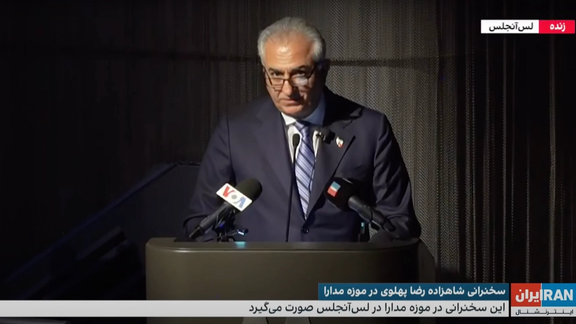
Iran’s exiled prince, Reza Pahlavi, says the region's problems are a result of global appeasement with the Islamic Republic.
Pahlavi highlighted Tehran’s destabilizing activities through its regional proxies such as Hamas, Hezbollah, and the Houthis and crackdown on dissent within Iran, calling on the world to support the revolutionary uprising of the Iranian people to end the regime.
“There is only one solution: help the people of Iran in their fight for liberation from the Islamic regime, and put an end to war and conflict,” he said after an Iran-backed militia attacked US troops on Sunday in Jordan, leaving three dead.
During a speech at the Simon Wiesenthal Center’s Museum of Tolerance in Los Angeles on Tuesday, he pointed out that nothing can push Iran into reform, the regime only more emboldened in the face of global sanctions. It has continued its nuclear program at an accelerated speed, supported Russia's invasion of Ukraine and continued to crack down on dissent at home with over 800 executions last year alone.
Pahlavi also called for the formation of a coalition working towards the overthrow of the Islamic Republic, not only for the sake of Iran, but the world. The UK alone has foiled tens of attacks since 2022, with dozens more around the world. In September, Israel's spy chief said it had also foiled 27 attacks on Israelis and Jews abroad in the past year.
The exiled prince stated that Iranians do not ask the US to send soldiers into Iran, instead, they want the US to support their aspirations for freedom and their fight against the regime. Pahlavi called for global efforts to facilitate Iranians' access to free internet and financial support for striking workers, utilizing the Islamic Republic’s funds currently blocked in the US.
He also renewed his criticism of the prisoner exchange deal between Tehran and Washington, in which Washington released five Iranians in addition to $6 billion of the country's frozen assets in South Korea in exchange for five Iranian-Americans who were held hostage in Iran. "The United States should give Iran's assets to the protesters instead of the Islamic Republic," he said.
Pahlavi’s message to the world echoes the demands of several opposition figures and international activists, especially since the Middle East conflict began on October 7, when Tehran-backed Islamist group Hamas invaded Israel, killed 1,400 mostly civilians and took hundreds of hostages.
In the wake of the attack, several other Iran-funded groups have intensified attacks on US and Israeli targets in Iraq and Syria while the Houthis of Yemen have been attacking international shipping in the Red Sea. Iranian officials claim that the country has had no active role in the conflict, but the proxies are the brainchild of Iran's Supreme Leader who himself called for the Red Sea blockade. During 2023, he met with leaders of Hamas and Hezbollah, suggesting top level coordination of the attacks which have triggered the worst violence in the region in years.
Echoing the exiled prince's calls, on the occasion of Holocaust Remembrance Day, women’s rights activist Masih Alinejad called on the Western world “to take a tough stance against the regime in Iran which is determined to eliminate Israel and kill its own people too.”